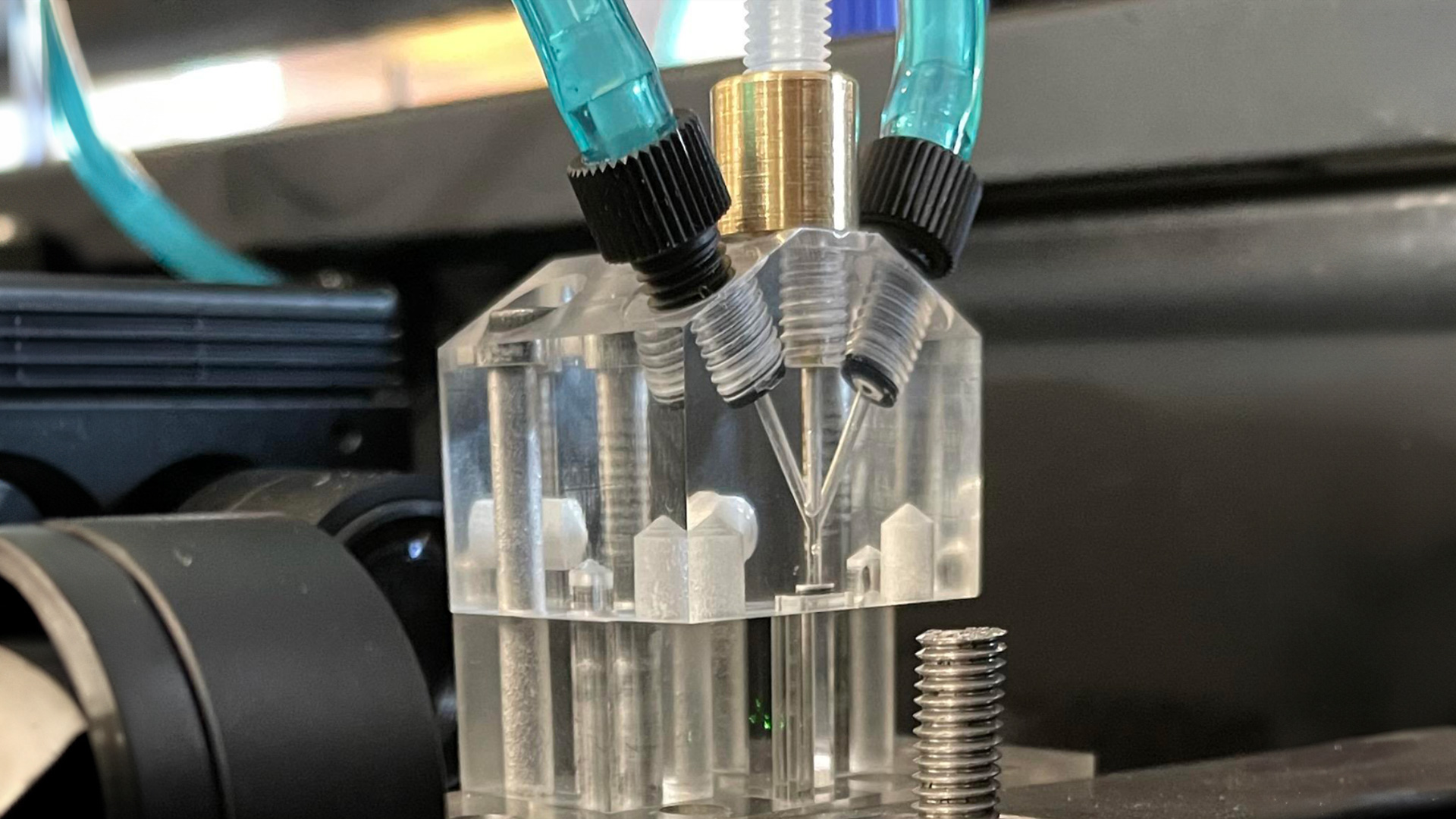Research Group
Bio-observatory

Group leader: Emil Boye Kromann
While our goals are broad, we stick to well-defined research challenges. Currently, our main focus is to develop optical instrumentation for large volume screening and high (‘super-‘) resolution imaging of structurally complex organ-on-chip systems - a technology, which can (down the road) advance our fundamental understanding of biological life, inform decision-making in personalized medicine, and fast-track the development of pharmaceutical treatments without animal testing.
We actively involve BSc/MSc-students in our work, both as thesis/project-students and via our course, 22510 Biomedical Prototyping, which takes place in DTU Skylab. Our core expertise is hardware/software-development for imaging of life at the micro/nano-scale and we enjoy working across disciplines with the more bio-savvy research groups around us.
Our group is anchored in the Department of Health Technology's Section for Optical Sensing and Imaging Systems.


Adobe Edge - HTML
Projects
Ongoing research projects
Imaging large and living organ-on-chip systems

Charting the bio-nanoparticle composition of liquid biopsies

Visualizing biological transport processes at the intestinal barrier

We are implementing an adaptive-optics enabled lattice light-sheet microscope and a two-photon excitation microscope geared for observing biological transport across intestinal barrier models in organ-on-chip systems. This work is a contribution to the Center for Intestinal Absorption and Transport of Biopharmaceuticals (CitBIO), which is supported by a Challenge Programme grant from the Novo Nordisk Foundation (NNF16OC0022166).
Group Leader
Emil B. Kromann:
2018 - Now Associate Professor, Dept. of Health Technology, DTU
2017 - 2018 Assistant Professor, Dept. of Electrical Engineering, DTU
2012 - 2017 Biomedical Engineering (PhD), Dept. of Cell Biology, Yale University
2006 - 2012 Biomedical Engineering (BSc and MSc), DTU
.
We run the BSc-level course 22510 Biomedical Prototyping in DTU Skylab – our innovation incubator.
The development of new biomedical instrumentation requires expertise in a range of scientific disciplines, including biology, medicine, electronics, mechanics, software, and (increasingly) optics. In this hands-on course, participants combine knowledge and practical skills from each of these fields to design, construct and test a bioimaging instrument (recently, a confocal laser scanning microscope, a widefield fluorescence microscope, a flow cytometer, and an automated AR-rig). Through hands-on work and a hackathon about a real-world biomedical problem, participants learn to use the workshops and start-up resources in DTU Skylab. Thus, the course strengthens participants’ basis for pursuing their own tech-ideas at their own initiative during their studies and beyond.
Alumni
Jadze Princeton C. Narag
PhD completed in 2023
Lasse P. Kristiansen
Started PhD studies in 2023
Research assistant in 2023
MSc thesis completed in 2023
Research assistant in 2020-2021
BSc thesis completed in 2020
Carl Emil S. Kovsted
Started PhD studies in 2023
Research assistant in 2022-2023
MSc thesis completed in 2022
BSc thesis completed in 2020
Jeppe B. Petersen
BSc thesis completed in 2022
Andrea S. Numme
BSc thesis completed in 2022
Anton A. Henriksen
BSc thesis completed in 2022
Andreas Rosenbom
BSc thesis completed in 2022
Elvin Iruthayam
MSc thesis completed in 2022
BSc thesis completed in 2020
Kirstina B.P. Vestersøe
MSc thesis completed in 2021
Andreas Hafstrøm
Research assistant in 2020-2021
BSc thesis completed in 2020
Anubhav Dureja
BSc thesis completed in 2020
Laila Rahmaoui
BSc thesis completed in 2020
Louise Frost
BSc thesis completed in 2020
Patrick Janowski
MSc thesis completed in 2019
Kristian J. Moltved
Research assistant in 2018
Gamze Yilan
BSc thesis completed in 2018
Huda I. Muhudin
BSc thesis completed in 2018
Our offices are located on the second floor (Danish: Første etage) of DTU Building 344.
Emil’s office (room 120) is in the middle of the hallway.
Our lab is in room 915 in the basement of the same building.
Mail: ebkro@dtu.dk
Phone: +45 (DK) 2337 2238
Location: Google maps
Mailing address:
Emil B. Kromann
Technical University of Denmark
Dept. of Health Technology
Oersteds Plads, Bldg. 345C, reception
2800 Kgs. Lyngby
Denmark